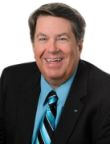Two years ago, I wrote that I had had the privilege of knowing some truly great leaders; some professionally, others socially. In the ensuing years, I’ve been repeatedly reminded of the role these individuals have played in my life and in the lives of others.
- My father taught me that leadership need not be loud and boisterous. He demonstrated that it could be quiet while setting an example for others to emulate; that the example would speak more loudly and more clearly than words ever could. He taught me that it required patience, honor, integrity, and honesty … honesty in one’s dealings with others and when seeing one’s own talents and shortcomings.
- My first agency manager, Ray, introduced me to Napoleon Hill’s statement that, “Whatever the mind can conceive and believe, the mind can achieve”. For Ray, this wasn’t simply a memorable quote, it was a credo that he taught to everyone and repeated daily until we truly believed in its truth. He was committed to helping each of his followers grow and become leaders … without ever voicing these words, he was committed to replicating the best qualities in him and shaping the lives of those who would replace him and become the leaders of the future.
- The individuals who serve on Eagle Scout Boards of Review. These men and women not only donate two nights a month to serve on Eagle BOR’s but also serve as unit leaders, unit committee members, and unit commissioners.
- The Scoutmasters, Assistant Scoutmasters, and Committee Chairs who make the local troops possible and empower them to function as the training grounds for future leaders.
This week, we gathered with family and friends to give thanks for the many gifts that we have been given. Please join me in giving thanks; not only this week, but in all the days and weeks to come, for the Great Leaders who have influenced each of our lives and the lives of so many others.
Tom Hoisington is a speaker, trainer, and author whose goal is to provide leaders and potential leaders with tools that empower them to build teams that are creative and cost effective along with a clearer understanding of how personality types interact within those teams. He can be contacted at [email protected]
